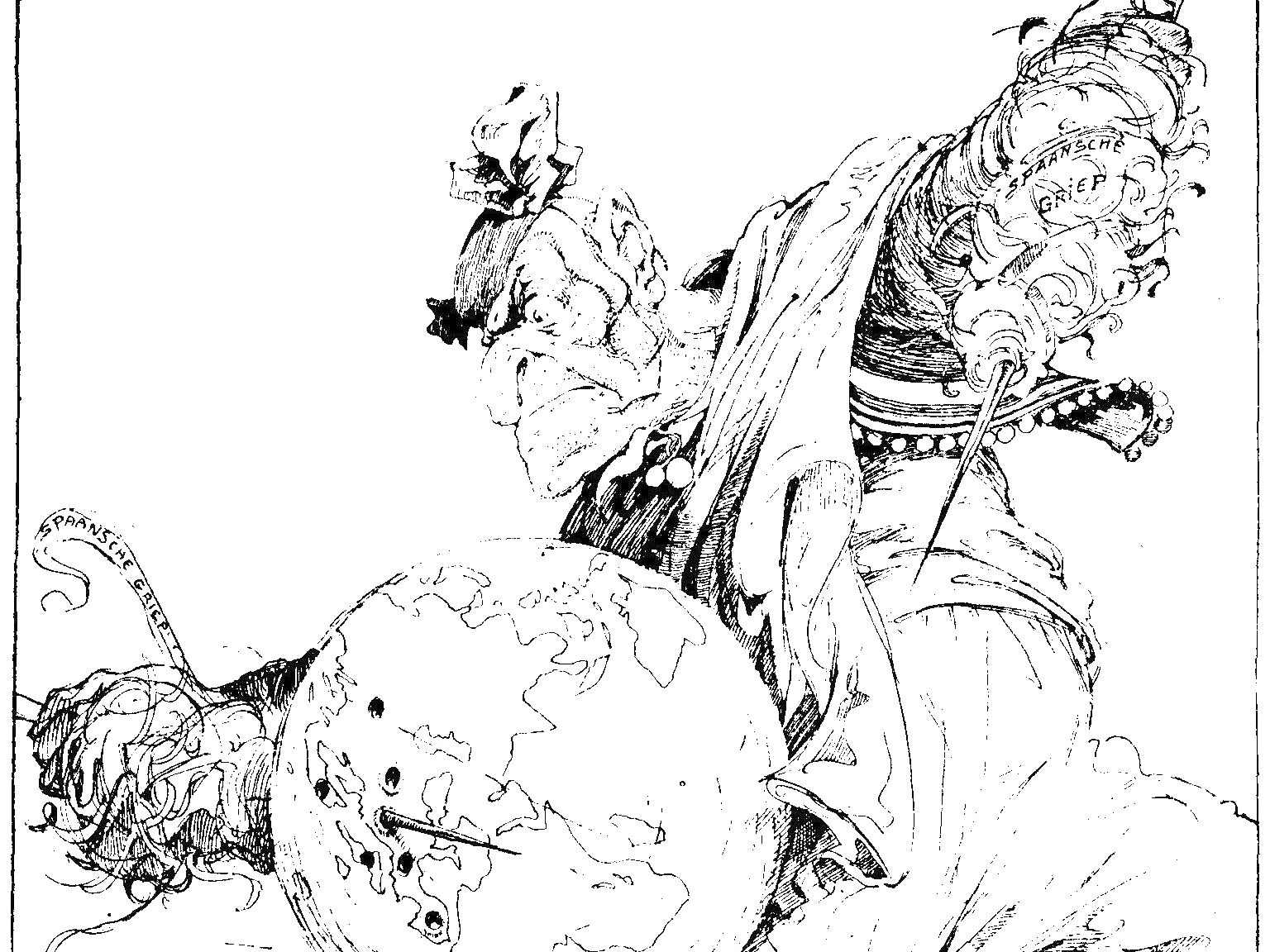Religion in Prison: An Overview of Contemporary Europe
Date:06 September 2021Author:Dr. Julia Martínez-Ariño
In this post, Dr. Julia Martínez-Ariño presents the book she edited with Dr. Anne-Laure Zwilling on "Religion in Prisons: An Overview of Contemporary Europe" (Springer, 2020).
Coping with Covid-19 in Dutch Christianity: A Comparison with the 1918 Spanish Flu Pandemic (Part Two)
Date:27 April 2020
One hundred years before Covid-19, the world was faced with the Spanish flu. What does a comparison between religious responses to these pandemics tell us about religion in general, and Christianity in particular, in the Netherlands (past and present)? Dr Tom-Eric Krijger, lecturer at the Faculty of Theology and Religious Studies at the University of Groningen, explores this question in a two-piece series.
Coping with Covid-19 in Dutch Christianity: A Comparison with the 1918 Spanish Flu Pandemic (Part One)
Date:24 April 2020
One hundred years before Covid-19, the world was faced with the Spanish flu. What does a comparison between religious responses to these pandemics tell us about religion in general, and Christianity in particular, in the Netherlands (past and present)? Dr Tom-Eric Krijger, lecturer at the Faculty of Theology and Religious Studies at the University of Groningen, explores this question in a two-piece series.
"Wash Your Hands and Be Washed in the Blood of the Lamb": Pentecostalism and Corona in Nigeria
Date:30 March 2020
While those who identify as secular or non-religious may be unused to dealing with existential crisis, many Christian communities - particularly Pentecostal congregations - have been preparing for the End Times for decades. How does Nigeria's most influential Pentecostal pastor make sense of the coronavirus? CRCG Fellow Dr Kim Knibbe investigates.
Disaster-affected People's Understandings of Secular Humanitarianism
Date:03 March 2020
In today's post, Dr. Olivia Wilkinson discusses her new book, Secular and Religious Dynamics in Humanitarian Response (Routledge, 2019)
Documenting Conversion to Islam: Laughter in the Face of Trouble
Date:13 February 2020
How do women converts to Islam use humour to challenge negative stereotypes about their religion? CRCG-affiliated Research MA student, Lucy Spoliar, investigates.
Apostasy: Between the Personal and Political
Date:27 January 2020Author:Dr. Julia Martínez-Ariño
Why are increasing numbers of Spaniards "apostasising," or actively removing themselves from the registers of the Catholic Church? CRCG Fellow Dr Julia Martínez-Ariño investigates.
The Problem of 'Religion' in Australia's Proposed Religious Discrimination Bill
Date:25 October 2019Author:Erin Wilson
Australia is currently debating whether or not to pass a controversial bill that would outlaw religious discrimination. But does it make sense to legislate to protect "religion"? CRCG Founder and Fellow, Dr Erin Wilson, explains why such laws can do more harm than good.
Sexual well-being in the context of religious and cultural diversity
Date:24 September 2019Author:Dr Brenda Bartelink
Which assumptions and stereotypes around religion and migration influence sexual health care for African migrants in the Netherlands? CRCG Fellows Drs Brenda Bartelink and Kim Knibbe investigate.
Exclusion through the Law: the Netherlands’ ‘Burqa Ban’
Date:16 September 2019Author:Aukje Muller
How does an ostensibly 'neutral' law work to shore up racist notions of national belonging? Aukje Muller reflects on the Netherlands' 'burqa ban' (boerkaverbod).











